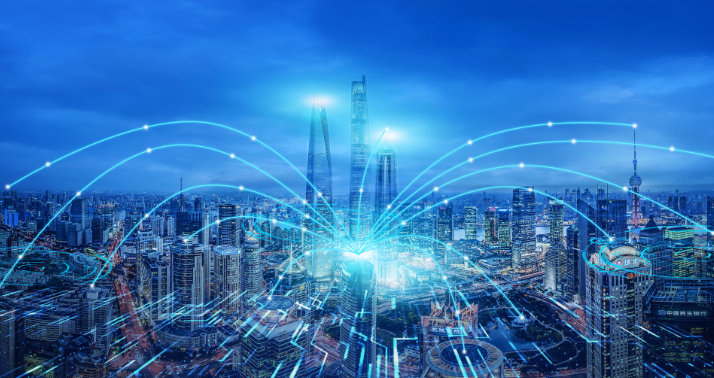Home >Technology peripherals >AI >Smart Grid Technology: Improving Energy Efficiency and Reliability
Smart Grid Technology: Improving Energy Efficiency and Reliability
- 王林forward
- 2023-07-02 22:12:221669browse

In today's world, energy demand continues to grow, and the need for efficient and reliable energy systems has become an urgent issue. With the emergence of smart grid technology, we are witnessing a revolution in the way electricity is produced, distributed and consumed. This technology holds the promise not only to improve energy efficiency, but also to improve the reliability of our power systems.
Smart grid technology refers to the integration of advanced communications, automation and computing technologies into the existing power grid. This enables two-way flow of power and information between utilities and their customers, allowing for better monitoring, control and optimization of energy use. The result is a more efficient, resilient and environmentally friendly electricity system that is better able to meet the growing energy demands of the 21st century.
One of the key features of smart grid technology is its ability to monitor and analyze real-time energy consumption data. This enables utilities to better understand and predict consumer behavior, allowing them to manage and allocate resources more efficiently. By doing so, utilities can reduce peak demand, lower energy costs, and minimize the need for additional power plants. Additionally, real-time data analytics can help identify and address grid inefficiencies, thereby improving overall performance and reducing energy waste.
Another significant advantage of smart grid technology is its ability to seamlessly integrate renewable energy sources. As the world shifts to cleaner, more sustainable energy solutions, the ability to integrate solar, wind and other renewable resources into the grid is becoming increasingly important. Smart grids can adapt to these variable energy sources by adjusting power flow to match supply and demand, ensuring that power remains stable and reliable even as the energy mix changes.
In addition to improving energy efficiency, smart grid technology also enhances power system reliability. By providing utilities with real-time information about the status of the grid, smart grids can help detect and prevent potential problems from escalating into full-blown blackouts. For example, smart grid sensors can identify faults in the system and automatically reroute power to avoid disruptions, minimizing the impact of outages on consumers.
In addition, smart grid technology can help protect power systems from external threats, such as cyber attacks and natural disasters. By combining advanced security measures and communication protocols, smart grids ensure the integrity and resiliency of the power system, protecting it from potential vulnerabilities.
One of the most promising aspects of smart grid technology is its potential to empower consumers to control their own energy use. Through the use of smart meters and other devices, consumers can gain real-time information about their energy consumption, allowing them to make more informed decisions about their energy use. This can lead to significant energy savings while also increasing a person’s sense of ownership and responsibility for their energy footprint.
In addition, smart grid technology can also promote the growth of electric vehicles (EVs) by providing the necessary infrastructure for charging stations and integrating electric vehicles into the grid. This helps reduce greenhouse gas emissions and promotes the adoption of cleaner modes of transportation.
In summary, smart grid technology has the potential to change the way we generate, distribute and consume electricity, resulting in a more efficient, reliable and sustainable energy system. By harnessing the power of advanced communications, automation and computing technologies, smart grids can help meet the growing energy demands of the 21st century while minimizing the environmental impact of power systems. As we continue to develop and implement this technology, we can look forward to a brighter, more energy-efficient future.
The above is the detailed content of Smart Grid Technology: Improving Energy Efficiency and Reliability. For more information, please follow other related articles on the PHP Chinese website!
Related articles
See more- Technology trends to watch in 2023
- How Artificial Intelligence is Bringing New Everyday Work to Data Center Teams
- Can artificial intelligence or automation solve the problem of low energy efficiency in buildings?
- OpenAI co-founder interviewed by Huang Renxun: GPT-4's reasoning capabilities have not yet reached expectations
- Microsoft's Bing surpasses Google in search traffic thanks to OpenAI technology

